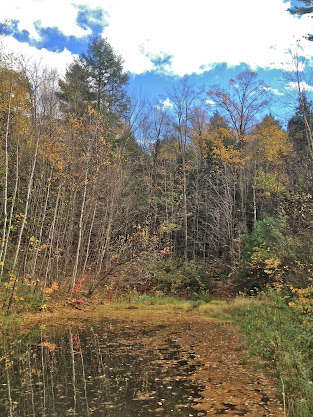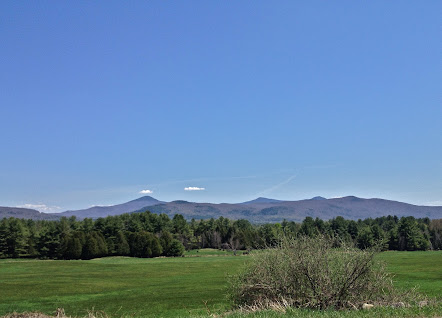October 20.
How pleasant to walk over beds of these fresh, crisp, and rustling fallen leaves, — clean, crisp, and wholesome! How beautiful they go to their graves! — painted of a thousand hues. How they are mixed up, all species, — oak and maple and chestnut and birch!
Merrily they go scampering over the earth, selecting their graves, whispering all through the woods about it. They that waved so loftily, how contentedly they return to dust again and afford nourishment to new generations of their kind, as well as to flutter on high!
So they troop to their graves, light and frisky.
They are about to add a leaf's breadth to the depth of the soil. We are all the richer for their decay. Nature is not cluttered with them. She is a perfect husbandman; she stores them all.
H. D. Thoreau, Journal, October 20, 1853
Oct. 20. How pleasant to walk over beds of these fresh, crisp, and rustling fallen leaves, — young hyson, green tea, clean, crisp, and wholesome! How beautiful they go to their graves ! how gently lay themselves down and turn to mould ! — painted of a thousand hues and fit to make the beds of us living. So they troop to their graves, light and frisky. They put on no weeds. Merrily they go scampering over the earth, selecting their graves, whispering all through the woods about it. They that waved so loftily, how contentedly they return to dust again and are laid low, resigned to lie and decay at the foot of the tree and afford nourishment to new generations of their kind, as well as to flutter on high ! How they are mixed up, all species, — oak and maple and chestnut and birch! They are about to add a leaf's breadth to the depth of the soil. We are all the richer for their decay. Nature is not cluttered with them. She is a perfect husbandman; she stores them all. See
October 22, 1853 ("The year's great crop. . . .. It prepares the virgin mould for future corn fields on which the earth fattens. They teach us how to die. How many flutterings before they rest quietly in their graves! A myriad wrappers for germinating seeds. By what subtle chemistry they will mount up again, climbing by the sap in the trees. The ground is all parti-colored with them. For beautiful variety can any crop be compared with them? ')















